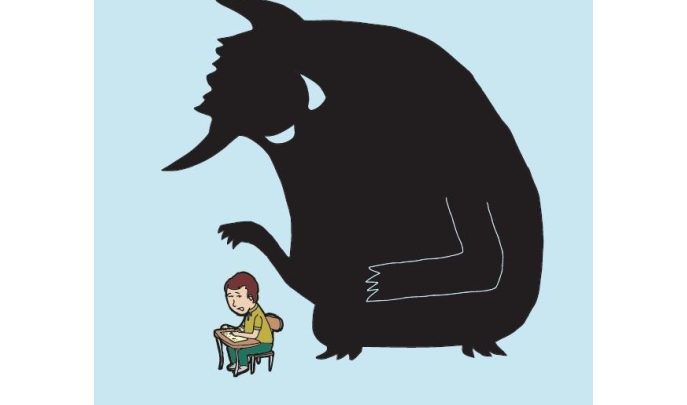“Writers’ Block Is Real - No Matter Who You Are”

Y4 teacher Ross Geraghty knows how scary it can be to have to produce a piece of writing to order – no matter how long you’ve been doing it…

So, anyway. Here I am, at the coalface, metaphorical pick and shovel in hand, chipping away at the mine of primary school writing potential. 27 unkempt Y4 faces pore down at their now-scraggy exercise books, deploying their eager minds like an overused simile.
On the still-new, funky interactive whiteboard thingy is the stimulus – a wild Hockney painting this time, carefully chosen by yours truly; on the other board, the modelled writing showing how we “can start to describe this setting, or the characters in it … who can think of something to share with the class?”
Yet then, the inevitable, moments later: “Mr G. I don’t know what to write.” Or: “Mr G, I’ve copied your writing off the board, I can’t think of anything else.” Or, after precisely 38 seconds: “Mr G, I’ve finished, what shall I do now?”
Hard times
As someone who has written all of his life, and made a living from the written word back before I got the calling, there are a few things that I know. One is that writers’ block is real, no matter who you are. Why, even sitting down to write this article – deadline: tomorrow, if you please – I stared at the blank page for several moments before remembering to do that spot of cleaning behind the fridge. It’s done now.
Two, you usually never finish until someone else stops you. There are novelists who would have nothing published, ever, if their editors hadn’t torn soggy manuscripts from their clammy, self– critical hands.
And three, most relevantly: for most human-folk, the fear of genuine creativity is real, too. Of really opening up, I mean. The resultant self-censorship is an act of cruelty and anxiety, not a desire to perfect anything. Added to this, as a professional I also fear what the editor of this goodly magazine will say about my own humble scrawlings.
What if she shakes her head, ruminating, “Oh dear, this is not what I wanted, not at all.”? Or gently returns it, with some tickled-pink and green-for-growth marks thereon? The anxiety, even for an old hand, is palpable.
Let it go
When I started teaching writing, I took the didactic role, thinking I had something important to impart, some teaching to do. And, in fact, I have. However, it’s not simply the technical – inverted commas, fronted adverbials, subordinating conjunctions… you know the drill. No, the most important learning I can impart is that the fear mindset stops all of us from doing our best. Not just you, Year Four children, but me too.
Perhaps you might call it the regressive mindset – to place oneself in the shoes of my pupils, and feel the fear that stays their pencil-holding hands; their desire to please yet terror of falling short, of being told, albeit gently, “no”, despite their very, very best efforts. In essence, all of the self-same anxieties that I feel, and hopefully overcome, on a regular basis.
It completely opens me up to a whole new approach to teaching. I’m onside with them, and they like that. The results have been great for one-third of the children, good for another third and have impacted the already fluid writers a little, too – they like how I let them go off-piste.
At the heart of my new writing lessons, and (mark!) my marking, is something seemingly forgotten: children need to enjoy writing, first and foremost because, when they do, the technical stuff falls into place accidentally on purpose. We may teach a grammar point for them to include, and keep the English coordinator happy, but primarily writing is about expressing yourself, and if fear keeps you from doing this then the only thing we have to fear is fear itself. Oh, and clichés.
So anyway, I get in character daily now. I play me as an adult in the mindset of an eight-year old. And for those children who give it, “I don’t know what to write,” or, “I don’t know how to start,” my response is, “You want to know something? I know exactly what you mean.”











